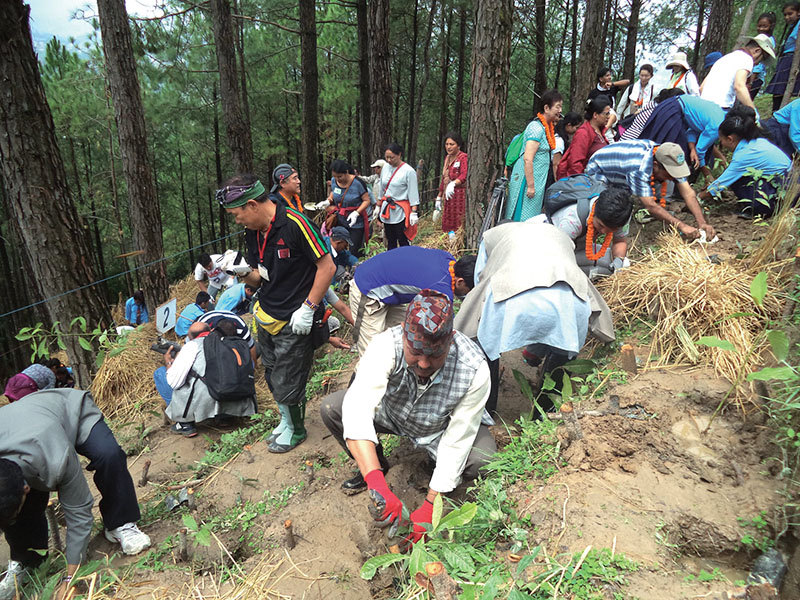2,200 trees planted in Changunarayan forest
Kathmandu, July 15
A plantation programme was organised in Changunarayan of Bhaktapur today with a view to restoring forest ecosystem.
The programme was jointly organised by Yamada Bee Company and Yokohama City University.
The plantation programme has been continuing since 2011. Legal adviser of Yamada Bee Company and coordinator of the plantation programme Balaram Shrestha informed that a total of 200 people participated in the event. He said a total of 2,200 trees were planted as part of the programme.
According to Yamada Bee Company trees were planted as per the Miyawaki technology for the restoration of forest in Changunarayan.
In 2016, 2,000 sample trees such as khari, thulo phalant, phaledo, dudhilo, musure katus, chilaune, uttis, kattus, kaffal among others were planted.
The plantation programme is organised every year in collaboration with Japanese and local people of Changunarayan.
The Miyawaki method of planting trees involves planting a number of different types of trees close together in a small pit.
By closely planting many random trees close together in a small area enriches the green cover and reinforces the richness of the land.
This leads to co-existence of plants and each plant draws from the other vital nutrients and they grow to become strong and healthy.
Since the 1970s, Akira Miyawaki had advocated the value of natural forests and the urgent need to restore them. He considered that the 1992 Earth Summit in Rio de Janeiro failed to protect native forests and they continue to decline or deteriorate.
Although most experts believe that rapid restoration of a forest is impossible or very difficult on a laterised and desertified soil following the destruction of rainforest, Miyawaki showed that rapid restoration of forest cover and restoration of soil was possible by using a judicious choice of pioneer and secondary indigenous species, densely planted and mycorrhised.






